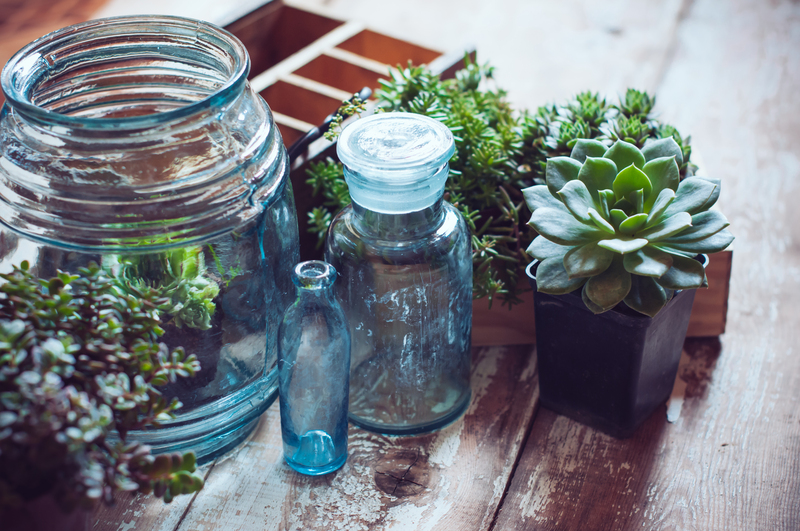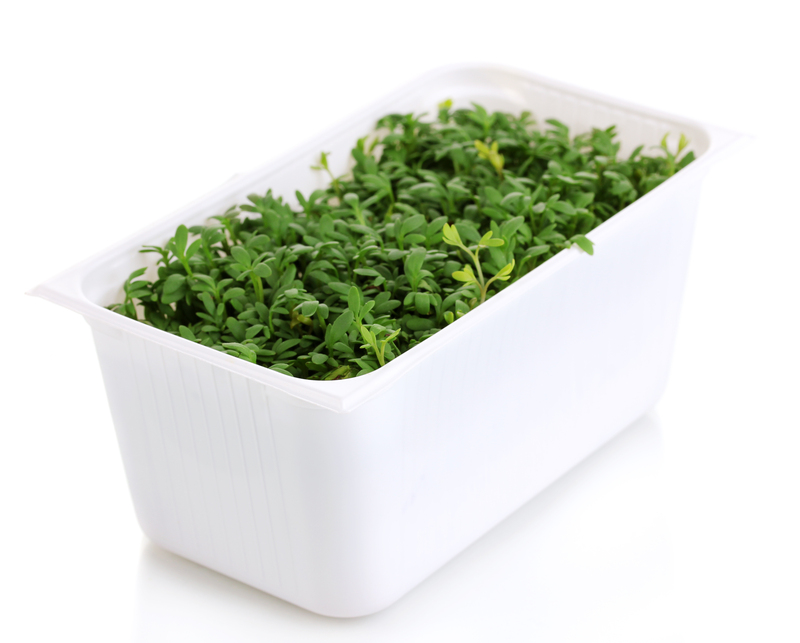Unleash Your Recycling Potential with Practical Advice
Recycling isn't just good for the planet—it's a powerful way for individuals and communities to foster a cleaner, healthier world. If you're ready to unleash your recycling potential, this comprehensive guide offers actionable tips, insightful strategies, and inspiration to make the most of your recycling journey. Whether you're just starting out or want to take your efforts to the next level, this article is packed with practical advice on recycling that you can easily incorporate into your daily routine.

Why Is Recycling So Important?
Before diving into useful recycling tips, it's essential to understand why recycling matters now more than ever. Here are a few compelling reasons to prioritize responsible waste management:
- Conserves Resources: Recycling helps conserve natural resources like timber, water, and minerals.
- Reduces Landfill Waste: Landfills are filling up fast. Recycling diverts waste from these sites, which decreases environmental pollution.
- Saves Energy: Creating products using recycled materials consumes significantly less energy than manufacturing from new materials.
- Protects Ecosystems and Wildlife: Less waste means less environmental disruption and pollution, helping preserve vital habitats.
- Supports the Economy: Recycling industries create jobs and support the local economy.
Unlocking your recycling potential starts with understanding this bigger picture. By adopting sustainable habits, you'll contribute to long-term environmental and societal well-being.
Breaking Down the Basics of Recycling
The Different Types of Materials You Can Recycle
- Paper and Cardboard: Newspapers, books, cardboard boxes, milk cartons, and office paper are widely accepted by most recycling programs.
- Plastics: Water bottles, food containers, and various packaging materials. Check the recycling symbols to know what your local facility handles.
- Metals: Aluminum cans, tin cans, and other metal packaging.
- Glass: Bottles and jars of all colors.
- Electronics: Old computers, phones, batteries, and other e-waste need special recycling facilities.
Pro tip: Always check with your local recycling center to find out what materials they accept—every municipality is different!
The Dos and Don'ts of Curbside Recycling
- Do rinse containers to remove food residue; Don't recycle heavily soiled items.
- Do flatten cardboard boxes to save space; Don't recycle cardboard with greasy stains (like pizza boxes).
- Do separate recyclables according to the program's rules; Don't mix all materials together if your center requires sorting.
- Do avoid bagging recyclables in plastic bags; Don't put plastic bags in curbside recycling bins (take them to dedicated drop-off locations).
10 Practical Tips to Unleash Your Recycling Potential
1. Know Your Local Recycling Guidelines
Rules vary from city to city, so it's crucial to get familiar with local policies. Download or print a guide from your waste management provider and keep it close to your recycling bin for quick reference.
2. Think Beyond the Kitchen
Many recyclables are found outside the kitchen. Don't forget to check your bathroom (shampoo bottles, toilet paper rolls), office (paper, electronics), and garage (old paint cans, car batteries). Increase your recycling potential by covering every room in your home!
3. Educate and Involve Your Household
Engaging housemates or your whole family is a great way to boost your sustainable impact. Set up clearly labeled bins, assign recycling tasks, and discuss why recycling matters. Making it a team effort ensures more thorough participation.
4. Create a Home Sorting System
One of the most effective ways to maximize your recycling habits is a well-organized sorting system. Use multiple bins for different material types and color-code them for easy use. This makes the recycling process seamless and efficient, reducing the risk of contamination.
5. Stay Mindful of Contaminants
Avoid "wish-cycling" (putting questionable items into the bin and hoping they're recyclable). Items that aren't accepted, like greasy pizza boxes or broken glass, can contaminate entire batches. When in doubt, throw it out—or research a special disposal or recycling option.
6. Reuse Before You Recycle
Reusing extends the life of products before they enter the recycling stream. Use glass jars for food storage, repurpose scrap paper for notes, or donate gently used clothing and electronics. This practice delays waste and saves resources.
7. Participate in Community Recycling Programs
Join local collection drives for e-waste, textiles, or hazardous materials. Many communities also offer composting programs, which reduce the volume of organic waste sent to landfills. Getting involved helps you stay informed and motivated.
8. Choose Products Made from Recycled Materials
One of the best ways to close the recycling loop is by purchasing items made from recycled content—from toilet paper to household plastic goods. This supports the recycling industry and reduces demand for virgin materials.
9. Stay Informed and Spread the Word
Follow reputable recycling news sources, subscribe to local updates, and attend educational events in your community. Share what you learn! Acting as a recycling ambassador helps build a culture of sustainability wherever you go.
10. Reduce First, Recycle Second
The most powerful way to minimize waste is to reduce what you buy and consume in the first place. Choose products with less packaging, opt for reusable containers and bags, and avoid disposable items when possible.
Advanced Strategies to Maximize Your Recycling Success
Composting: Recycling Food for a Healthier Planet
Food scraps and yard waste make up over 30% of what we throw away. Composting is an underutilized strategy to divert this waste and create nutrient-rich soil for gardens and plants. Start with a small bin in your kitchen and research local programs or community gardens that accept food waste. Recycling organic material reduces greenhouse gas emissions and revitalizes soil—a win-win!
Green Shopping Choices to Enhance Recycling
- Buy in Bulk: Reduces packaging waste.
- Favor Recyclable Packaging: Choose items in glass, aluminum, or cardboard instead of multilayer plastics or non-recyclables.
- Look for Eco-Friendly Labels: Certifications like the Mobius loop or "made with recycled content" help guide your choices.
Utilize Take-Back and Recycling Programs
- Retailers often accept batteries, electronics, light bulbs, textiles, and plastic bags for recycling. Find drop-off locations in your area.
- Manufacturers may offer mail-in recycling for products like ink cartridges, electronics, or medications.
These options ensure hard-to-recycle materials are processed responsibly.
Troubleshooting Common Recycling Challenges
Addressing Contamination
Contamination is the number one reason recycled loads end up in the landfill. Here's how to keep your recycling clean:
- Always rinse containers and let them dry.
- Keep food and liquids out of recycling bins.
- Do not include items like plastic bags, styrofoam, or "tanglers" (cords, hoses) unless explicitly accepted by your recycler.
Handling Items with Limited Recycling Options
Some items require special attention:
- Batteries and Electronics: Use dedicated e-waste recycling centers.
- Textiles: Donate or take to clothing recycling programs.
- Hazardous Waste: Contact your municipal waste service for safe disposal days.
Innovative Approaches to Increase Your Recycling Efforts
Embracing Technology
Tons of apps and websites can help you track your recycling habits, find drop-off locations, and learn how to recycle new items. Examples include iRecycle, Recycle Coach, and Earth911.
Creative Upcycling
Go beyond basic recycling by transforming "waste" into functional or decorative items—from turning glass bottles into lamps to making art from reclaimed materials. Upcycling is a fun and educational way to rethink your relationship with waste.
Zero Waste Living
Ultimately, the most effective approach is aiming for a zero waste lifestyle by refusing single-use products, reducing consumption, and prioritizing circular resources. While this may take time, every small step counts toward a cleaner future.

Frequently Asked Questions on Recycling
-
What can I do if my local recycling program doesn't accept certain materials?
Seek out specialized recycling drop-offs or mail-in programs for hard-to-recycle items. Check online databases or community boards for local recycling solutions. -
How can I be sure my recyclables are really being recycled?
Stay informed about your waste management provider's processes, and follow their guidelines closely. Reduce contamination to ensure your items make it through the recycling stream. -
Is recycling really worth my time?
Absolutely! Small actions compounded across a community result in significant environmental benefits—plus, your efforts inspire those around you to participate, amplifying the positive impact. -
Should I remove labels or lids before recycling?
Most modern recycling systems accept containers with labels, but always remove plastic caps and lids unless stated otherwise by your recycler.
Conclusion: Your Journey to a Better World Starts Now
You have the power to make a real difference. By taking proactive steps to improve your recycling habits, you're contributing to a cleaner, more resilient future. Remember that every bottle, can, or piece of paper recycled is a victory for the earth.
Keep learning, stay motivated, and inspire others to join you. As you unleash your full recycling potential, you'll discover that the true impact stretches far beyond your own home—it ripples outward, protecting our ecosystems, conserving resources, and building a brighter tomorrow.
Start today, and witness the power of intentional recycling in your daily life!